|
“Rejoice in the Lord always. I will say it again: Rejoice!”
These words from Paul’s letter to the Philippians rang out to us a few weeks ago on Gaudete Sunday. Rejoice? How can we rejoice when there are so many bad things happening all around us? We are approaching our second full year of this global pandemic. The virus continues to rage and destroy lives, livelihoods, and ways of life. As a parent of small children, I feel a sense of dread each time my email alert sounds, wondering if my child has been exposed at school and will she need to quarantine again? How am I supposed to rejoice in this? As excited and grateful as I was to feel the sense of relief when my older daughter was able to be vaccinated, I continue to feel a sense of uneasiness and concern that my younger daughter, who is under five, will need to wait many months to get her vaccine. How am I supposed to rejoice in this? In December, there was a deadly school shooting in Oxford, MI, thirty miles north of where I grew up. My heart aches for the families and students who lost loved ones and friends. I also fear that this could happen closer to me, in my daughters’ schools, or in a public place nearby. How am I supposed to rejoice in this? How am I supposed to rejoice in this? I am supposed to rejoice in all of this because my faith compels me to. How can we exist if we don’t have joy or trust that God is taking care of us? As people of faith, we need to respond to what is going on around us with the lens of our faith. In his letter to the Philippians, Paul continues: “Let your gentleness be evident to all. The Lord is near. Do not be anxious about anything, but in every situation, by prayer and petition, with thanksgiving, present your requests to God. And the peace of God, which transcends all understanding, will guard your hearts and your minds in Christ Jesus.” The world around us is full of stressors, fear, and uncertainty. Our sense of security is shaken. Throughout this pandemic, I have found that there is only so much I can do to control what is happening. I take the necessary precautions for my family and myself, but beyond that, there is a sense of liberation in letting go of what I can’t control. It helps when I put away my phone or turn off the TV, and focus on what is most important: my family and friends, my own self-care, and my faith. As Paul continues in his letter: “Finally, brothers and sisters, whatever is true, whatever is noble, whatever is right, whatever is pure, whatever is lovely, whatever is admirable—if anything is excellent or praiseworthy—think about such things. Whatever you have learned or received or heard from me, or seen in me—put it into practice. And the God of peace will be with you.” As we start a new year, I encourage you to put these words into practice. Think about what is noble, right, pure, lovely, admirable, excellent, and praiseworthy. Focus on the positive aspects of what is happening, take care of ourselves and those around us, and rejoice in the Lord always!
0 Comments
As I have gotten older, my favorite part about Lent has become the fact that we have the privilege of willingly walking into the desert - into these 40 days - with our Lord. I think there are a lot of times in our lives when we suddenly find ourselves in the desert - desperate for water, nourishment, or companionship. It is in the desert where we not only grow in intimacy with the Lord, but are also able to be strengthened through real repentance. What is true for us in the deserts of our lives is the same thing that was true for the Prodigal Son in this Sunday’s Gospel: we receive the promise of a Father who receives our repentance with mercy. The story of the Prodigal Son is an important one for us to reflect upon as we continue on our Lenten journeys - it is through repentance that the very son who squandered his inheritance is welcomed back with open arms into the mercy of his father. And the story doesn’t end there: not only does the father embrace and welcome his son back, he rejoices and celebrates his return for those around him to see. It is through our repentance that we experience the mercy of God; it is through our repentance that we receive the promise of the desert of these 40 days. This is so beautifully echoed in all the readings that the Church gives us during this season: God the Father rejoices when we are brought back to life again (Luke 15:32). We as Catholics have the unique privilege of receiving this mercy every time we hear the words of the priest absolving us in the Sacrament of Reconciliation. Our moments of feeling desperate in the desert can be alleviated by honest repentance. After one particularly frustrating time in my life, I remember feeling like the Prodigal Son: convicted that I needed to repent and return to God, but also feeling shame over all the ways that I had squandered what the Lord had given me. And in that moment a priest reminded me that confession is always a place of victory. Like the prodigal son who acknowledged his failures and was welcomed back with mercy and celebration, we too find an outpouring of mercy and grace when we reconcile ourselves to God. As we journey towards Calvary, we do so knowing that our repentance leads to an encounter of mercy and ultimately to victory. Questions for Reflection: What are some moments in your life when you’ve encountered the mercy of God and others? How did these moments affect you? For more resources to accompany you in your Lenten journey, please click here. “What should we do?” the crowds ask John the Baptist in this Sunday’s Gospel. This simple question permeates our earthly lives. What should we do with our time, treasure, and talent? What should we do in school, in our careers, in our community? What should we do with our lives? As we prepare to celebrate the Third Sunday of Advent, we can look to the Scriptures to help us answer this resounding question. In the readings for Sunday, we hear responses that can be boiled down to two words: “rejoice” and “give.” These words can guide not only our Advent journey, but our entire spiritual lives. “Rejoice in the Lord always,” St. Paul writes to the Philippians in the second reading. This is not a suggestion, but a command—one coming from a man who has experienced beatings, stoning, shipwreck, cold, hunger, and robbery. This call comes from a man who, by human standards, has no cause to rejoice. What, then, sets Paul apart from the average human person? A relationship with Jesus Christ. It is this relationship, which nothing can break, that enables us to rejoice regardless of our circumstances. During this time of year, it is fitting to be merry and to rejoice. Decorations and lights fill stores and homes, festive music plays, and social engagements abound. The world rejoices over the coming of our Savior on Christmas Day. He has already come and opened the doors of salvation, and he continues to invite each generation into this wonderful gift as we celebrate his birth each year. But what does this rejoicing look like for Christians? Herein lies the second piece of advice from this Sunday’s readings: rejoice through giving. This, too, is something our culture thinks about during the Advent and Christmas seasons. We participate in “Secret Santa” gift exchanges with friends or colleagues; our parishes collect gifts for families in need; we exchange gifts on Christmas Day with family and loved ones. The prayer attributed to St. Francis says, “it is in giving that we receive.” Do we not feel this in a special way at Christmas time? The capacity with which we rejoice cannot exist in its fullness without our capacity to give. The more fully our “kindness is known to all,” as St. Paul wrote to the Philippians, the more fully we experience the true joy that comes from Christ. Our acts of service make us more capable of truly rejoicing. The Christian life is one of both prayer and action. In the Gospel, John the Baptist directs the Jews asking him “what should we do?” to works of mercy--Catholic Social Teaching in seed form. “Whoever has two tunics should share with the person who has none. And whoever has food should do likewise…Stop collecting more than what is prescribed…Do not practice extortion, do not falsely accuse anyone, and be satisfied with your wages,” he responds to the crowds, tax collectors, and soldiers. These seem like simple, almost obvious, directions. But we need to be reminded of them again and again. This Advent, may we be “filled with expectation” as we rejoice in Christ. As we seek to answer “what should we do?”, let us ask for the intercession of St. Paul and St. John the Baptist to more fully rejoice by modeling kindness through our daily acts of service and charity. Questions for Reflection: How are you rejoicing this Christmas season? How can you participate in the spirit of giving? The candy has gone on sale, the post-Thanksgiving “leftover sandwich” has been eaten, but it’s not time to deck the halls just yet. As many prepare for the joyful season of Christmas, complete with mall Santas, holiday movies, and plans to celebrate the Nativity of Jesus Christ, the Church prepares during the season of Advent. This time isn’t just for buying gifts and putting up the tree, but to prepare ourselves spiritually for the coming of Christ. This season of preparation can be traced back to 4th century France, though the Advent we are familiar with can be traced back to Pope Gregory I and Rome in the 6th and 7th centuries. Whereas Lent is a time of penance for Christians, Advent is a time of preparation and hope. Not only do we prepare for the birth of the Lord, but we also look to the Second Coming of Christ. The first coming of Jesus at Christmas opened the doors for our salvation and prefigures his Second Coming. It is because of this hope that Advent focuses on light and not darkness. This light can be symbolized in the Advent wreaths that adorn Churches and the houses of the faithful. The four candles represent the four weeks of Advent, three purple and one rose. The purple candles represent prayer and sacrifices that are undertaken in preparation for the coming of Christ. The rose candle, lit on Gaudete Sunday (the third Sunday of Advent), is a symbol of rejoicing as the faithful have reached the midpoint of the season. When we thank God for the forgiveness of our sins and for the chance to be with him for all eternity in Heaven, we often think of Easter, but Christmas is necessary in the plan for our salvation as well. Before Christ could suffer and die for us, achieving our redemption and the path for our salvation, he had to become man. What a gift this is! If you follow the Franciscan theology of the incarnation as proposed by Bl. Duns Scotus, Christ would’ve become man with or without the original sin of Adam and Eve, but his mission of salvation makes his Incarnation that much more special for us. As Pope Benedict XVI said at a General Audience, “[Bl. Duns Scotus] reaffirmed that the Incarnation is the greatest and most beautiful work of the entire history of salvation.” Jesus, the God of all the universe, became man. But he did not just become a man—he became a vulnerable baby born in a manger. As we encounter him every time we partake in the Eucharist, let us pray and meditate upon the fact that God became vulnerable for us. God loved us so much that he became man. Years after his birth in a manger, he took on our sins so that we may be with him forever. Just as we prepare to receive him into our bodies when we receive the Eucharist, let us prepare to receive the Lord into the world this Advent and make ourselves more worthy of him. Advent is our time to come closer to Christ, to meditate on how he is present in our lives, and to see how he has called us to live with our fellow man as we await his Second Coming. While prayer, fasting, and almsgiving are certainly emphasized during the season of Lent, they can also be integral parts to our preparation for Christmas. May we pray for Christ to be present in our lives and for us to do his will at all times; may we fast from the things that lead us away from him; and may we give alms to those who are less fortunate than us. In these ways we prepare for Christ during Advent as we await both his Nativity and his Second Coming. Question for Reflection: What are some Advent traditions that have helped you prepare for the coming of Christ? For more resources to help you throughout the Advent season, please click here. “Rejoice! Hidden within your life is a seed of resurrection, an offer of life ready to be awakened.” -Pope Francis What does Easter look like for you? Does it mean plates filled with sweets, a backyard sprinkled with hidden eggs, a large family gathering, wearing your Sunday best, a long evening at the Easter Vigil? The first Easter Sunday was comprised of an empty tomb, faces that went from fear and despair to bewilderment and excitement, and hands and feet that were pierced but glorified. But for all Christians, Easter Sunday is a day of transformation: darkness to light, despair to hope, death to resurrection. We have journeyed with Christ for 40 days in prayer, fasting, and almsgiving in order to reach this point of transformation. We have been made ready, through God’s grace, to join Him in the celebration of His victory over sin and death. And so Pope Francis reminds us to “Rejoice!,” for the resurrected life of Christ is offered to each and every one of us. Will you allow it to be awakened? The Paschal Mystery is so great that the Church will continue to celebrate this central event for the next 50 days until the Feast of Pentecost, on May 20th. I love the significance of the length of time. Though we have fasted with Jesus in the desert for 40 days, we celebrate as a Church for longer—symbolizing the ultimate victory of our efforts when united with Christ. Though we are called to have periods of intense fasting and prayer in our spiritual life, the end goal is the Resurrection. Let us not fail to celebrate the Easter season and let us celebrate it well! We do this by allowing the life of Christ to live within us long after the Lenten season. Pope Francis said, “The heartbeat of the Risen Lord is granted us as a gift, a present, a new horizon. The beating heart of the Risen Lord is given to us, and we are asked to give it in turn as a transforming force, as the leaven of a new humanity.” Will our hearts beat in time with Christ’s? Will we become the leaven of a new humanity? And if so, what does this even look like? The Gospels give us a few clues. On the night before Christ gave Himself over to be crucified, we read about an intimate encounter between Him and John who has come to be known through tradition as the “Beloved Disciple.” At the Last Supper, after Jesus has washed the disciples’ feet, we read in John 13:23 that “One of his disciples, the one whom Jesus loved, was reclining at Jesus’ side.” During this time of heightened anticipation, it’s an easy detail to miss. John was literally resting on the heart of Christ. He was also present at the crucifixion, the one who did not abandon his Master in this time of fear and confusion. Spending time with Christ in prayer, resting on His heart, allows our hearts to beat in time with His and helps us become “leaven of a new humanity.” The holy women who followed Jesus also understood this. They were present at Christ’s crucifixion and were the first disciples to whom Jesus appeared on the day of His Resurrection. May we look to the example of John and the holy women as we embark on this Easter season. Let us go frequently to meet the Lord and rest with Him by spending time in reflective prayer, reading Scripture, receiving the sacraments, and “washing the feet” of our brothers and sisters. These actions allow our hearts to sync with His. Let us go quickly to the tomb—as the holy women did— only to find it empty, so that we can return with the joyous news of the Resurrection and proclaim it to all who will listen. Pope Francis encourages us, “Let us go, then. Let us allow ourselves to be surprised by this new dawn and by the newness that Christ alone can give. May we allow his tenderness and his love to guide our steps. May we allow the beating of his heart to quicken our faintness of heart.” Questions for Reflection: How has your spiritual life transformed throughout Lent? How can you faithfully celebrate this Easter season? Click here for more resources to guide you through this Easter season. “The first end I propose in our daily work is to do the will of God; secondly, to do it in the manner he wills it; and thirdly to do it because it is his will.” – St. Elizabeth Ann Seton St. Elizabeth Ann Seton (1774-1821), whom we celebrate on January 4, holds the distinction of being the first native-born American saint. Looking back over her great achievements (which include planting the seeds of Catholic education in America and founding a religious order, the Daughters of Charity), what is so special and relevant about Mother Seton is how ordinary her holiness was. From Wall Street to Italy, from Baltimore to rural Emmitsburg, MD, Elizabeth initially lead a privileged life, but always remained humble and grounded. After becoming a widow with five children at only 28 years old, she eventually moved her young family to Emmitsburg and founded a religious order and Catholic school. After the death of her husband, her life was difficult, filled with personal trials and hardships. Yet, through all of it, she demonstrated constant dedication to discerning and pursuing the will of God, or, as she simply called it, “The Will.” In fact, it is through looking at how Elizabeth sought God’s will in the toughest moments of life that we stand to learn the most from her remarkable, yet ordinary life. Embracing Change “God, forgive what I have been, correct what I am, and direct what I shall be.” Humans are creatures of habit, which makes change a scary thing. God certainly called St. Elizabeth to change directions many times over the course of her life, even change her vocation! Elizabeth remained faithful and constant in the moment, while exercising abandonment to the will of God to respond freely as her circumstances changed. Elizabeth demonstrates how we do not become saints overnight, but grow through a day-by-day process of seeking forgiveness and correction every step of the way. Faithfulness in Failure “We know certainly that our God calls us to a holy life. We know that he gives us every grace, every abundant grace; and though we are so weak of ourselves, this grace is able to carry us through every obstacle and difficulty.” Growing up in a prosperous family, Elizabeth enjoyed a happy and fruitful marriage, blessing her with five children. Together with her husband William, to whom she was very much in love, they inherited a successful business on Wall Street. But in a short period of time, all that changed. William’s business failed and went bankrupt. Elizabeth knew success very early on, but learned firsthand the difference between success and faithfulness. As an American saint, Elizabeth powerfully challenges the American tendency to view outward success as an indisputable sign of God’s grace. The experience awakened in Elizabeth a newfound love of the poor, as well as a deeper understanding of the will of God in the midst of many obstacles and difficulties on the path to a holy life. Trust During Tragedy “The accidents of life separate us from our dearest friends, but let us not despair. God is like a looking glass in which souls see each other. The more we are united to Him by love, the nearer we are to those who belong to Him.” Not long after her family went bankrupt, Elizabeth and her husband William moved to Italy, where he became sick and died of Tuberculosis. Elizabeth had already lost her mother and sister early in life. Following her husband’s death, Elizabeth found consolation and hope in visiting and praying in various churches throughout Italy, and felt especially drawn to the Eucharist and the Blessed Virgin Mary even though she was still Episcopalian. Her experience planted seeds for her entrance into the Catholic Church. Many of us, myself included, have experienced tragedy strike at the heart of a family. Elizabeth demonstrates that tragedy, though profoundly shaking, need not lead to despair, but an invitation to rely even more on the will of God. Rejoice Despite Rejection “Afflictions are the steps to heaven.” When news of Elizabeth’s conversion in 1805 became public, many parents removed their children from the school where Elizabeth taught in Baltimore (after returning from Italy) and other friends no longer associated with her. Used to being a well-liked socialite, this experience must have been painful. Despite feelings of rejection, Elizabeth did not become bitter, defensive, or lose her natural joy and generosity. Instead, Elizabeth teaches us that following the will of God opens us to greater love and acceptance of others, not enmity with them. The tragedies and setbacks in Elizabeth’s life were not enough to keep her from trusting the will of God. In her own words, “God has given me a great deal to do, and I have always and hope always to prefer his will to every wish of my own.” Let us approach this new year as St. Elizabeth Ann Seton would have, eager to both desire and do the will of God. Consider starting off 2017 with this novena to St. Elizabeth Ann Seton starting tomorrow, January 4th. Pray in a special way to desire, know, and follow the will of God as St. Elizabeth Ann Seton did. St. Elizabeth Ann Seton, pray for us! Today we are re-posting a blog from our archives on the many ways we can use prayer to communicate with God. Consider adopting one of these forms of prayer into your weekly routine as you strive to strengthen your relationship with the Lord.
10/8/2015 In a classroom of 25 students, sometimes it gets a little noisy. Just simply saying, “In the name of the Father, and of the Son…” in my Catholic school can quiet a room faster than the loudest bell or my scariest tone of voice. Students can begin the day with prayer, end it with prayer, and say it before meals. However, prayer in a student’s life can come in many forms. Rejoice always, pray continually, give thanks in all circumstances; for this is God’s will for you in Christ Jesus. (1 Thes 5:16-18) In my school, we try and encourage our students to “find God in all things.” This is a beautiful way to appreciate God’s creation and look for Him throughout our lives in the people we meet, places we go, and in everything we do. For second graders, these moments of thankfulness can be tricky to find, but when they discover that it can be as easy as thinking, “Thank you God for the opportunity to be in school today and learn about volcanoes,” the difficulty fades away. Then you will call on me and come and pray to me, and I will listen to you. (Jer 29:12) Another form of prayer I use in my classroom is silent reflection. Responses vary from boredom to feeling peace. I remind the children that prayer is a chance to talk to God about something or sit in the silence and listen for God talk to them. This quiet peace is what helps us reinvigorate our afternoons for more learning! This is the confidence we have in approaching God: that if we ask anything according to his will, he hears us. (1 John 5:14) Recently, journaling has been my students’ favorite form of prayer. We handed out small prayer journals so that each student could write prayers from the heart to God. Letting them know their writing is private and personal was a crucial part to helping them understand that prayer can be an intimate conversation with the Lord about anything and everything. Children learn about prayer from those closest to them, so for those who have children, I challenge you: be a role model in prayer. Take just a few moments in a day, especially with your child, and pray. ■ The Lord’s Prayer is a good place to start if you don’t know what to say! ■ The Rosary is a beautiful way to ask Mother Mary to intercede for us on a regular basis. ■ The Serenity Prayer is a lifesaver for me sometimes, it helps me think about what things in life I can change and what things I cannot solve! It is a truly beautiful prayer to memorize. My students may not realize it now, but one day (hopefully soon) this whole “prayer thing” may click for them. All the eye-rolling and goofing-around may one day stop. If only for a moment, my second graders may actually feel the presence of God. For a moment, they might believe God is answering a prayer request they made. They may earnestly thank the Lord for the day they’ve just had. These many forms of prayer that are presented to them throughout the day may click, hopefully in such a way that they might even try to pray on their own. For more resources on Prayer and Catechesis, please visit http://www.catholicapostolatecenter.org/prayer--catechesis.html. Originally published on 10/8/2015. In a classroom of 25 students, sometimes it gets a little noisy. Just simply saying, “In the name of the Father, and of the Son…” in my Catholic school can quiet a room faster than the loudest bell or my scariest tone of voice. Students can begin the day with prayer, end it with prayer, and say it before meals. However, prayer in a student’s life can come in many forms.
Rejoice always, pray continually, give thanks in all circumstances; for this is God’s will for you in Christ Jesus. (1 Thes 5:16-18) In my school, we try and encourage our students to “find God in all things.” This is a beautiful way to appreciate God’s creation and look for Him throughout our lives in the people we meet, places we go, and in everything we do. For second graders, these moments of thankfulness can be tricky to find, but when they discover that it can be as easy as thinking, “Thank you God for the opportunity to be in school today and learn about volcanoes,” the difficulty fades away. Then you will call on me and come and pray to me, and I will listen to you. (Jer 29:12) Another form of prayer I use in my classroom is silent reflection. Responses vary from boredom to feeling peace. I remind the children that prayer is a chance to talk to God about something or sit in the silence and listen for God talk to them. This quiet peace is what helps us reinvigorate our afternoons for more learning! This is the confidence we have in approaching God: that if we ask anything according to his will, he hears us. (1 John 5:14) Recently, journaling has been my students’ favorite form of prayer. We handed out small prayer journals so that each student could write prayers from the heart to God. Letting them know their writing is private and personal was a crucial part to helping them understand that prayer can be an intimate conversation with the Lord about anything and everything. Children learn about prayer from those closest to them, so for those who have children, I challenge you: be a role model in prayer. Take just a few moments in a day, especially with your child, and pray. ■ The Lord’s Prayer is a good place to start if you don’t know what to say! ■ The Rosary is a beautiful way to ask Mother Mary to intercede for us on a regular basis. ■ The Serenity Prayer is a lifesaver for me sometimes, it helps me think about what things in life I can change and what things I cannot solve! It is a truly beautiful prayer to memorize. My students may not realize it now, but one day (hopefully soon) this whole “prayer thing” may click for them. All the eye-rolling and goofing-around may one day stop. If only for a moment, my second graders may actually feel the presence of God. For a moment, they might believe God is answering a prayer request they made. They may earnestly thank the Lord for the day they’ve just had. These many forms of prayer that are presented to them throughout the day may click, hopefully in such a way that they might even try to pray on their own. For more resources on Prayer and Catechesis, please visit http://www.catholicapostolatecenter.org/prayer--catechesis.html. n the wake of the Holy Father’s first visit to the United States, the Catholic Apostolate Center would like to share some of our favorite quotes from his time here. This is a two-week series where we will share 10 quotes each week. We invite you to use these quotes and images as you “Move forward! Siempre adelante!” in your journey of faith.
1. “In prayer, God keeps calling us, opening our hearts to charity.” Prayer is nothing more than lifting our hearts or minds to God. God, the Eternal Present, is at all times beckoning us towards deeper union with him. Pope Francis reminds us that the fruit of prayer is charity—selfless love. We cannot spend true time with God in prayer and remain untransformed by his charity. It is this encounter with Charity itself—with God—that impels us to respond with charity towards others. 2. “Joy springs from a grateful heart.” As Christians, we are called to be a witnesses of Christ’s love and the Father’s mercy. Joy is the fruit of holiness, of unity with God. May we be joyful people of Resurrection whose light reflects the unquenchable light of God. Choose joy. 3. “Rejoice in the Lord always! I say it again, rejoice!” As Pope Francis said in his homily during the Canonization Mass of Junipero Serra, St. Paul practically orders us to rejoice. What a beautiful “commandment.” What often strikes people, Christian or not, about Pope Francis is his joy. Pope Francis radiates the joy of the gospel. It is precisely this joy that he exudes which attracts so many to him. This joy comes from the Lord. Only by rejoicing in Him, will we be able to rejoice for Him and invite others into this joy. 4. “God bless America!” This statement from Pope Francis throughout his visit is short but powerful. Pope Francis, the Vicar of Christ, is calling down God’s blessings upon the American nation. In so doing, he is blessing our roads, our work, our families, our very existence. May we be a people of blessing. May we be a blessing to others—living signs of the ultimate blessing of God. 5. “If we want life, let us give life. If we want opportunities, let us provide opportunities.” In his address to Congress, Pope Francis cited the Golden Rule as a solid foundation for promoting the common good. In our individualistic society, we often forget our vocation to promote the common good. It’s difficult to see how our actions impact others. Pope Francis reminds us to “do unto others as you would have them do unto you.” (Matthew 7:12) 6. “In the face of unjust and painful situations, faith brings us the light which scatters the darkness.” Our world is wrought with injustice, suffering and hardship. The seeming lack of logic regarding suffering leads many to reject the notion of a benevolent, loving and present Creator. Pope Francis spoke the words above to a group of homeless individuals at Catholic Charities in Washington, D.C. In doing so, Pope Francis does not try to excuse injustice or suffering, but affirms that God does not abandon us to face it alone. 7. “Jesus keeps knocking on our door in the faces of our brothers and sisters, in the faces of our neighbors, in the faces of those at our side.” Oftentimes, it’s tempting to love humanity as a whole and become frustrated with people in particular. This could mean being short with our co-worker, impatient with a roommate or ignorant of the impoverished we pass by on the street. Pope Francis reminds us that Christ is present in each and every one of us. He is knocking on the door of our hearts, asking us to invite him in in the face of those we reject, overlook or avoid. Let us start by loving people in particular in order to love humanity as a whole. 8. “God is present in every one of you, in each one of us.” Each of us is made in the image and likeness of God, which means that we all carry inherent dignity. Humanity’s status as the epitome of God’s creation means that we are called to treat others respectfully and be treated thus. By reminding ourselves not only that God is present within us, but in each one of us, we can begin to live according to our dignity and honor the dignity of every human life. 9. “Prayer makes us brothers and sisters.” When we pray, we pray to the same Father. Through his death and resurrection, Jesus opened the doors of heaven to mankind after the Fall and enabled us to call God “our Father.” Because we are now made sons and daughters of God, when we pray, we join the whole of the Church. May we live as a family, as brothers and sisters striving to return to our true home with God our Father in heaven. 10. “Forward! Keep moving forward!” As Christians, we are called to always move forward in our journey of faith, on our mission of love. Pope Francis reminds us that the way forward requires encountering Christ so that we may encounter him in others. Though our world oftentimes is filled with darkness, the Christian goes forward boldly towards the light of Christ. May we go forward each day in our pursuit of God himself, in our pursuit of holiness and love. As I looked from the trail, I saw a beautiful, soft mist that seemed to be gently kissing my face. There was a purple hue on the vast fields of heather ahead; while the surrounding foliage was the brightest green that I'd ever seen. There was a soft breeze that gently traveled through the glen and seemed to be the words of encouragement I needed to keep climbing; to keep pushing. In the distance there was a long loch that seemed to stretch for miles and miles. In the air if I stopped and listened, I swear that off in the distance a lone bagpiper was playing. In this moment, I finally gained appreciation for the country of my ancestors. I was in Scotland, climbing Ben Nevis, the tallest peak in the country. I was on a pilgrimage through land of my ancestors. My grandfather's family hails from the northern most island in the Orkney Islands called North Ronaldsay. The Tulloch's were proud members of Clan Ross, and were happy to wear the family tartan. I thought I had found paradise, and I didn't want to leave. Many years later, I was walking down a cobblestone street and found another paradise. I could hear bells tolling and I could smell another phenomenal dish being served at a sidewalk restaurant. There was a clear, deep blue sky above, even on New Year's Day. It did not take very long to actually hear a musician playing a familiar country tune. I went from church to church walking with the saints. This was the city of Rome, in all its glory. As I wandered the streets with our pilgrimage group, eating gelato, I thought to myself that this place also was paradise and I didn't want to leave. In a way that's what pilgrimages do. They transport us to a new location, both physically and spiritually. This Saturday is the feast of Saint James the Apostle. St. James was one of Jesus' first disciples, was present for the transfiguration, and it is believed that he was the first apostle to be martyred. After his death, his remains were transported to Spain and he was buried at Santiago de Compostela. This site has become one of the greatest pilgrimage locations in the world called El Camino, The Way of St. James. Pilgrims since the Middle Ages have been making the trek in northern Spain. It can take a pilgrim several months to complete, depending on which route they take, and the pilgrimage is becoming increasingly popular. In 1985, records show that approximately 700 pilgrims made the trek, but by 2010 there were nearly 273,000 pilgrims that set out to complete the Way of St. James. This popular pilgrimage was documented in the 2010 movie The Way, starring Martin Sheen and written by his son, Emilio Estevez. Pilgrimages can be anywhere and can take any kind of form. We can travel to distant places, far from home, or we can visit somewhere close to home. Pilgrimages are meant for us to find ourselves and to deepen our relationship with God. When we walk with a friend, we chat and get to know them better, and the same is true when we walk with God. As we move forward in life, we are never done with our journey. When we rejoice, God is there rejoicing, and when we cry, God is there too, comforting us. Pilgrimages remind us of this. If we can seek God in all places then one does not have to be in the Scottish Highlands, in the streets of Rome, or on the Camino to be on pilgrimage. We can go anywhere and we will be on our way to find God. Patrick Fricchione is the Research and Production Associate for the Catholic Apostolate Center
To learn more about Martin Sheen and his Catholic Identity, check out this webinar where Sr. Rose Pacette, FSP discusses the faith surrounding this actor and the stories that shaped his Catholic Faith: It has been just over a week since Easter Sunday. Some of you may be enjoying sipping lattes again, hitting the snooze button, reaching for another doughnut or taking warmer showers. Some of you may be looking back on Lent with relief because you got through it. Others may be exasperated by promises broken, while still others rejoice quietly at another season of growth with the Lord. Regardless of how you perceive your Lenten journey, rejoice! We remain in the Easter season! We continue to sing praise and proclaim the victory of the Lord!
We rejoice, despite the traffic jam. We rejoice, despite fickle weather. We rejoice, despite the world’s indifference.. We rejoice, despite news of ongoing persecution. We rejoice, because death is conquered. We rejoice, because Christ is Risen. In last Thursday’s Gospel, Christ asks his disciples, “Why are you troubled? And why do questions arise in your hearts?” He poses the same questions to us today. Why are we troubled? We often fret, watching the news, getting up for what seems like another monotonous day, finding a stain on our clothing or cleaning up the fiftieth mess of the day. We are often tempted to wonder if Christ’s Resurrection really has an effect on our day to day lives. Mentally, we understand that this moment in history is what makes our lives possible. It is why we are redeemed, why Christianity has any meaning. But how has the light of the Resurrection seeped into the “ordinariness” of your day? Can you say your life looks different before and after the Lenten season? The Resurrected Christ, whose glorious body is transformed and yet still pierced, asks us: What troubles you? Why is your heart wrought with questions? Has not my life, death and Resurrection shown you at what lengths I was willing to go to prove my love for you? Have you not seen I have conquered your greatest foe—death? Rejoice with me, my little one! Your life has been made anew! Christ’s death and Resurrection were God’s answer to fallen man’s question: “am I lovable?” His answer--spoken in Jesus’ life, laughter, miracles, scourging, Crucifixion--is a resounding “YES.” This is the glory of the Resurrection that gives meaning to the “ordinariness” of each day and makes each moment of our lives something miraculous and spectacular. As Christians, we rejoice always—for we are a people of Resurrection living in the certainty of being loved and forgiven. During the Easter season, we rejoice in a profoundly heartfelt and thoughtful way. We have walked forty days with Christ in a season of prayer, penance and service, and we have crucified our weaknesses and imperfections with Him in order to emerge from this time freer and more beautiful than before. Our steps may have faltered. We may have failed along the way. But our aim this past Lent was to grow closer to Christ, even but half a step closer. And our attempt to do so, even small and imperfect, is cause for rejoicing. Throughout this Easter season, I invite you to continue to reflect on your Lenten journey in the light of Christ’s Resurrection. Continue to incorporate the spiritual practices you took on or offer up small forms of sacrifice in your day to day lives on the path of holiness. The more we welcome Christ in our hearts, the more his light can penetrate our very being to illuminate the world. Try to “look” different after each Lenten season so that at the end of your life, you may look like Him—the Crucified, but also, the glorified, the Resurrected. Kate Flannery is pursuing a Master's degree in Leadership for the New Evangelization at the Augustine Institute in Denver and graduates in May. My entire life I have always had a yearning in my heart to become a teacher, and this summer was the beginning of that dream becoming a reality. I spent all summer soaking up every classroom management technique I was given, as well as learning the best ways to make math fun for secondary students. I entered the classroom in August, and I realized that implementing those tools was nothing less than difficult. I pray that my students learned half as much from me as I learned from them. Although this job is not easy, my students inspire me to wake up every day and teach them something about translating algebraic expressions, but even more so, about love and the goodness of life.
However, my teaching cohort met at the end of the semester to pre-plan for January, and we were reminded that inspiration is not enough to do this work. We need passion and drive to see us through this work so that we may do it well. Every. Single. Day. One professor challenged us saying, “Your teaching is a song. What song gets you going every single morning and keeps you going throughout the day? The week? The month? The year?” I realized that our faith, too, needs a song. We need an Advent Song – a gift from the beginning that continues to fuel us throughout the day, the week, the month, the year. As Advent comes to a close, we celebrate the joy of Christ’s birth, but after that, will we continue to live our Advent Song each day? In yesterday’s Gospel, we learn of Mary’s Advent Song – “The Magnificat.” She sings, “My soul proclaims the greatness of the Lord; my spirit rejoices in God my savior…” (Luke 1:46-47). Her life was exemplified by this song. If you read beyond today’s Gospel, Zechariah, the father of John the Baptist, also sings out, “Blessed be the Lord the God of Israel, for he has visited and brought redemption to his people” (Luke 1:68). Each sing of the Lord’s goodness and faithfulness, which we know endures forever. As you reflect on the close of this Advent season, transitioning into Christmas, ask God what song will keep your heart burning and returning to him throughout the year. What will help you know the Lord each day and what will help you give Him to others? What song will fill you with joy so that you may also sing with Mary and Zechariah? As Advent comes to a close, know of my prayers for you: that you may find your Advent Song and sing God’s goodness and faithfulness throughout the year long. Alyce Anderson is a teacher in Washington DC. To learn more about Advent, please see our Advent Resource Page! I don’t know if you’re like me, but unfortunately I’m pretty good at losing things. In the past week alone I have lost my keys about 3 times (of course with St. Anthony to the rescue), and I think I have lost a Metro Card indefinitely. In the hustle and bustle of life, things that seem little begin to lose their priority, and when you need them you realize how important these things are in your daily life. When you find what has been lost you are incredibly thankful, but then the next day you forget about your celebration, and go on to the hustle and bustle of life, once again finding yourself in the same situation, begging God to help you find your keys.
Sometimes we treat our faith like our keys. We go through the motions of grabbing our keys and heading out the door, just like how we go through the motions of going to Mass every week. We just do it. We do so mindlessly, going through the routine, not really conscious of our actions and their meaning. Before you know it, we find ourselves in a mess bigger than we can handle, and we run to God because we know he is the one who can solve it. And without fail, God is faithful, and he embraces us in his loving arms, regardless of whether or not this is the first, second, tenth, or fiftieth time something has happened. Why is God so willing to always take care of us, even when we have lost sight of him before? Even though we sin and feel unworthy? In our Gospel reading today, Jesus tells us two parables of God’s rejoicing when he searches for us and finds us. If you were the hundredth sheep in a flock, and you went missing, God would leave the ninety-nine and search for you until he found you. Not only does he search for you, but when he finds his lost sheep, “he [places you] on his shoulders with great joy and, upon his arrival home, he calls together his friends and neighbors and says to them, ‘Rejoice with me because I have found my lost sheep’” (Luke 15:5-6). Jesus then goes on to tell the story of a woman who lost one coin out of ten, and she lit a lamp and swept the house until she found her precious coin. When she found it, she rejoiced and celebrated with friends over finding what had once been lost! Just like the lost sheep or the missing coin, we are truly precious in God’s eyes and he celebrates when he brings us back to himself. When we find ourselves in God’s embrace, it is important to remember that this is the place where we want to stay. It is a call for us as Christians to remember that heaven is our goal, and we need to be actively searching for God, just as God is always searching to bring us back to him. When we search for him, with eyes open and eager, we can find God in the smallest and simplest of things. Searching for God is a mindset that we must live out, and although it is challenging, there is grace and joy in living the life of a Christian. In today’s readings, St. Paul tells us that his mindset is this: “More than that, I even consider everything as a loss because of the supreme good of knowing Christ Jesus my Lord. For his sake I have accepted the loss of all things and I consider them so much rubbish, that I may gain Christ and be found in him.” (Philippians 3:8-9) As Christians we must lose ourselves and gain Christ. We must detach ourselves from this world and search for God. He is always giving us ways to bring us back to himself, if only we search for him. For me, in the trivial suffering of losing my keys, with the mindset of a Christian I see that God can use his glory in any situation to bring me back to himself. My dependence relies on God, not a set of keys. Where can you search for God today? Is it when you lose your keys? Or perhaps you can find God in the rose bushes still blooming in November. Is it with a smile of a passerby? Where can you find Jesus? He is there, wherever you look for him. And when you find him, let your hearts rejoice (Ps 105:3). Alyce Anderson is a teacher in Washington D.C. Mardi Gras, to me, is another example of the type of people we Catholics are—CELEBRATORY! How many other faiths enter into a season of contemplation, penitence and conversion with a party? Tonight, in my own community we will prepare for Lent by eating red meat—an occurrence that rarely happens in our house- drinking the rest of the good wine, and finishing the King Cake that was sent to us from our family down south. Many other Catholics across the country and world will follow suit- clearing their houses of all that they will be fasting from starting tomorrow.
The celebratory people that we are today are not denied tomorrow with the season of Lent. Rather, we recognize and value that to be a people who can rejoice completely and live fully alive we must first be a people of transformation and conversion. Richard Rohr writes, “If we do not transform our pain we will transmit it.” The season of Lent is a season to contemplate the pains in our own lives and transform them, so that in the rising of the Lord at Easter we can truly REJOICE. Tomorrow we put on Ashes from the palms that we waved when we rejoiced in the coming of Christ into Jerusalem last year at Palm Sunday. These Ashes do not show our holiness, rather they outwardly show our recognition that we are a people who need to convert our ways and transform our pains. During Lent we enter into the silence of contemplation to strip ourselves of all things that keep us from pure joy and blind us from recognizing God among us. Thomas Merton, a Trappist Monk and spiritual writer, stated the following about contemplation: “To enter into the realm of contemplation, one must in a certain sense die: but this death is in fact the entrance into a higher life. It is a death for the sake of life, which leaves behind all that we can know or treasure as life, as thought, as experience as joy, as being. [Every form of intuition and experience] die to be born again on a higher level of life.” This is what we celebrate today! We celebrate being a people who wish to enter into the realm of contemplation for the sake of transformation; to enter a realm of difficulty, pain, and struggle in order transform our experiences of joy and life into pure joy and eternal life. As Catholics we enter into the season of Lent by first eating rich foods, drinking merrily, and celebrating the lives that we have been given. This joy of being Catholic is then enriched when we can fast from all that distracts us from pure joy, give alms to those in which Christ resides, and deepen our relationship with our Savior through prayer. Today we start with a party and tomorrow we live the transformation that our hearts desire so that in 40 days and 40 nights we can fully celebrate the risen Lord and rejoice as a celebratory people! Pam Tremblay is the Blog Editor for the Catholic Apostolate Center. “With a happy and cheerful face, we can prove that the imitation of Christ fills our lives with joy.”
– St. Vincent Pallotti We live in a celebratory society. We celebrate the birth of a child, the graduation of a student, and the birthday of a friend. In my family, there is always an excuse for a party. This past year, in particular, offered many opportunities for celebrations: the birth of my niece, my Grandma’s 85th birthday, my sister-in-law’s new job, the wedding of two different cousins this past fall, and my own wedding last summer. As a society and in our families, we have parties for holidays, sporting events, and sometimes for no particular reason at all. Why not take those every day celebrations and lead them into a celebration of the life of our faith? Why not live our faith life with joy? Our Catholic faith is one of celebration; we are an Easter people, a joyful people! In his letter to the Philippians, Paul tells the disciples: “Rejoice in the Lord always; again, I will say, rejoice.” (Philippians 4:4). We are urged in our faith to rejoice and celebrate all we have been given from God. In his book Between Heaven and Mirth: Why Joy, Humor and Laughter Are at the Heart of the Spiritual Life, Rev. James Martin, SJ tells a story of meeting the Superior-General of the Jesuits, Peter-Hans Kolvenbach, during his formation. When Martin asks Kolvenbach what the best ways are to increase vocations, the Superior-General replies, “Live your own vocation joyfully.” Martin goes on to say, “Joy attracts people to God. Why would anyone want to join a group of miserable people?” (88). If we are living out our faith joyfully, others will take notice. We can even look to the saints as examples of how to live our lives joyfully. St. Therese of Lisieux lived her vocation joyfully as a Carmelite nun, doing little acts for those around her; living out her faith in a simple way. St. Francis of Assisi felt that his life was a gift of love and spent his life in thanksgiving for that gift. No matter what our vocation in life is and no matter what we are facing, we need to remember we are an Easter people and strive to live life with joy. This doesn’t mean that we have to be happy all the time or that there won’t be periods of darkness or indifference. It means that we need to cherish what we have been given, aim to serve others, and celebrate our faith in God. “Rejoice in the Lord always; again, I will say, rejoice.” Monica Thom Konschnik serves as the Administrator for the Catholic Apostolate Center and the Pallottine Seminary at Green Hill. |
Details
Archives
July 2024
Categories
All
|
About |
Media |
© COPYRIGHT 2024 | ALL RIGHTS RESERVED



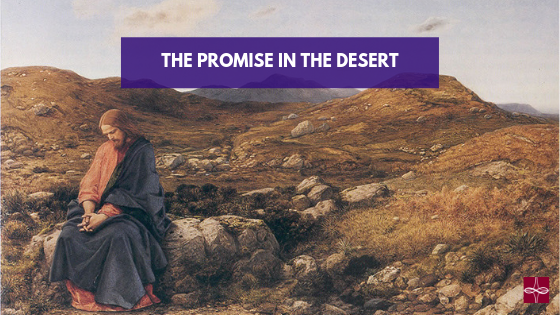



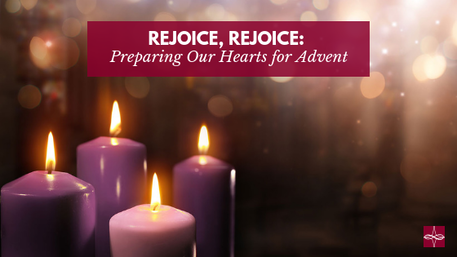

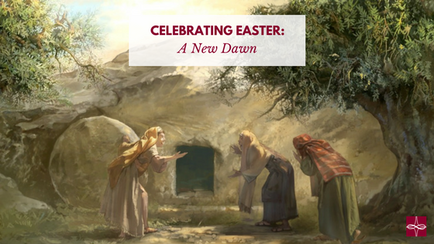

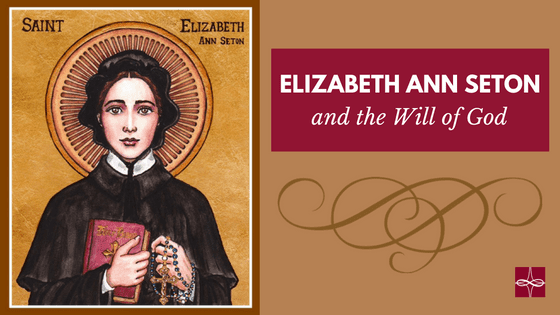







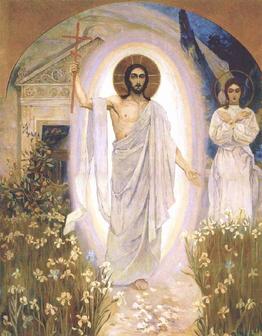
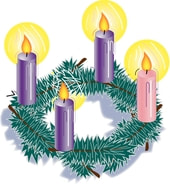



 RSS Feed
RSS Feed